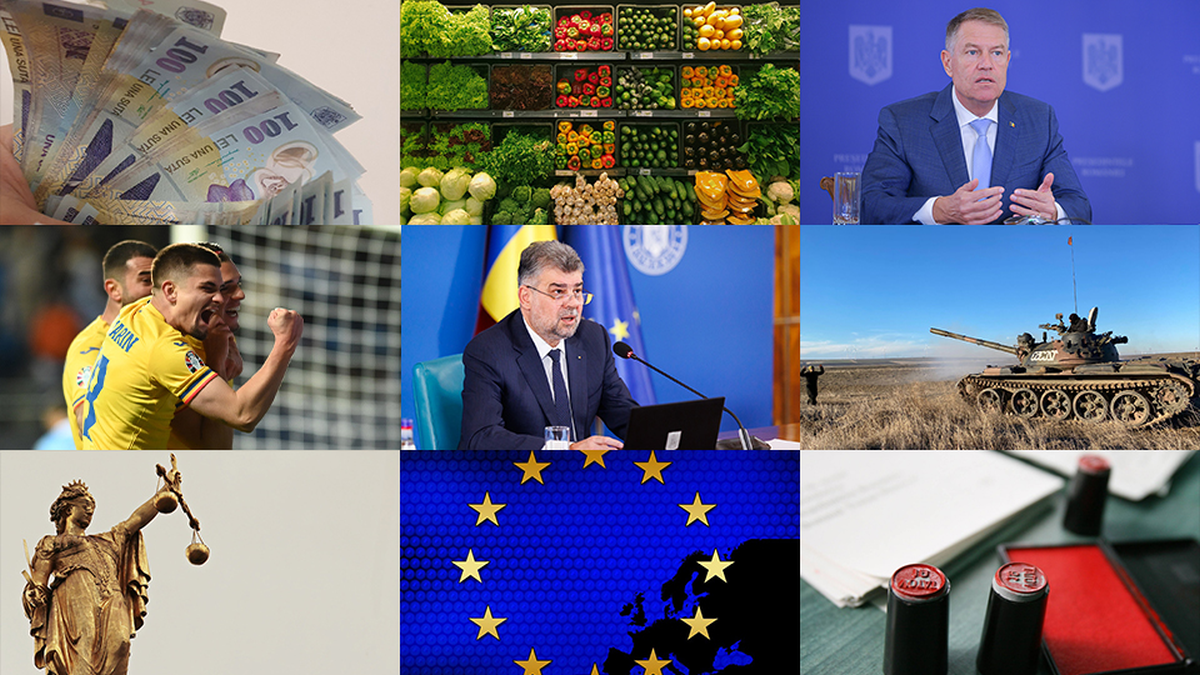The Week in Review 4- 10 November 2019
A review of the past week's highlights

Mihai Pelin, 09.11.2019, 13:24
A new Liberal government has been invested in Bucharest.
On Monday evening, joining for a common session, Romania’s two-chamber Parliament voted for the investiture of a new government, headed by the leader of the National Liberal Party PNL, Ludovic Orban. Although the new government needed only 233 votes to pass, that is half plus one of the total number of senators and deputies, they got 240 votes in the context in which the Liberals hold only about 20% of the number of votes in Parliament. The most numerous group the Social Democratic Party and its splinter group Pro Romania boycotted the voting. Voting for the investiture of the new government were the representatives of the Save Romania Union, the People’s Movement Party, the Democratic Union of Ethnic Hungarians in Romania, the Alliance of Liberals and Democrats, the national minorities group as well as several MPs from Pro Romania party who disregarded the order of the their leader, the former Social Democratic PM Victor Ponta, not to vote. Thus, a Liberal government has taken over from the Social Democratic government headed by Viorica Dancila, dismissed on October 10 through a motion of no confidence.
In comparison with the numerous Social Democratic government, the Liberals opted for a government formula consisting of 16 ministries alone. Some of the priorities of the new cabinet are the budget adjustment and the 2020 state budget. Among the new ministers are personalities whose competence has been recognized by their very adversaries, namely the lawyer Catalin Predoiu who will take the justice minister seat, the diplomat Bogdan Aurescu who will be foreign minister and general Nicolae Ciuca who will serve as defense minister. The new government will also include ministers who received a negative vote in the special parliamentary committees such as Ion Ştefan, for the public works ministry, Violeta Alexandru, for the labor ministry and Florin Cîţu for the public finance ministry. This composite team will govern Romania for one year, until the scheduled parliamentary elections in the fall of 2020. However, this government is very fragile, given that the small groups that voted for its investment have their own agendas and requirements, often diverging, and any motion of no confidence could pass quite easily, analysts say.
MEP Adina Valean is Romania’s proposal for European Commissioner for Transports, accepted in Brussels.
The Liberal MEP Adina Valean is Romania’s proposal for European Commissioner for transport accepted by the EC’s president-elect Ursula von der Leyen. The latter had interviews with the two candidates proposed by the Romanian government, namely MEPs Siegfried Muresan and Adina Valean. A spokesperson for the EC transition team said that both candidates did well at the interview with the EC president, who eventually chose a woman. Adina Valean is an MEP with a lot of experience who led the EP’s Committee on the Environment and she is currently the president of the European Parliament’s Committee on Industry, Research and Energy (ITRE). According to EU officials, in time she has accumulated a lot of experience in relation to transport issues.
Last week, the EC expressed ‘serious doubts’ as to the proposal for transport commissioner made by the former Social Democratic government being ‘legitimate’, given that the former PM Viorica Dancila had not consulted the president Iohannis over the proposal. Dancila had proposed Victor Negrescu for the position, a former minister delegate for European Affairs. The previous two nominations made by the Social Democrats equally failed: Rovana Plumb failed the integrity test in the legal committee due to her wealth declaration. And Dan Nica, a former minister, didnt even get to the hearing stage, since the Dancila Cabinet was in the meantime removed from office after a no-confidence motion in Parliament. Romania’s candidate will be interviewed by the EP Committee on Transport on November 14 after being heard in the legal committee which verifies the integrity of candidates. The investiture vote in the new committees is to take place at the end of the month, for the new EC to start its activity on December 1.
The EC estimates the Romanian economy will grow slightly this year.
The growth rate of the Romanian economy will see a slight increase this year to reach 4.1% of the GDP, before slowing down to 3.6% in 2020 and 3.3% in 2021, according to the European Commissions autumn forecast. Also, the Commission expects inflationist pressure in Romania to drop from 4.1% in 2018 to 3.9% in 2019 and to return to the figure targeted by the National Bank of Romania, namely 2.5 plus/minus 1% in 2020. The European Commission warns that the budget deficit will rise to 3.6% this year following significant pay rises in the public sector.
The first round of the presidential vote started in the Diaspora.
The campaign for the presidential election in Romania has ended. The Romanian citizens living abroad already started the vote on Friday to elect a president for the next five years. Its for the first time that elections are taking place over a 3-day period in the Romanian diaspora, both in the first and the second round. The first round is taking place until Sunday and the second between the 22nd and the 24th of November. The president of the Permanent Electoral Authority said recently that this years presidential election in Romania is the most expensive so far. The total amount allocated is around 150 million Euros, of which 50 million is spent on the voting process abroad. To avoid long queues like in the past, 835 polling stations were created, twice as many as in the previous elections. The most numerous polling stations are in Spain — 143 and Italy — 142. In Germany there are 79 stations, 72 in the UK and 50 in France. Besides the citizens going to the polls, there will be more than 43 thousand Romanians who chose to vote by post, according to the portal www.votstrainatate.ro. In Romania the citizens with the right to vote can cast their ballot during one single day, on Sunday, November 10, and November 24 respectively. There are 14 candidates running for the presidential office, both from parliamentary and non-parliamentary parties and independents.





























